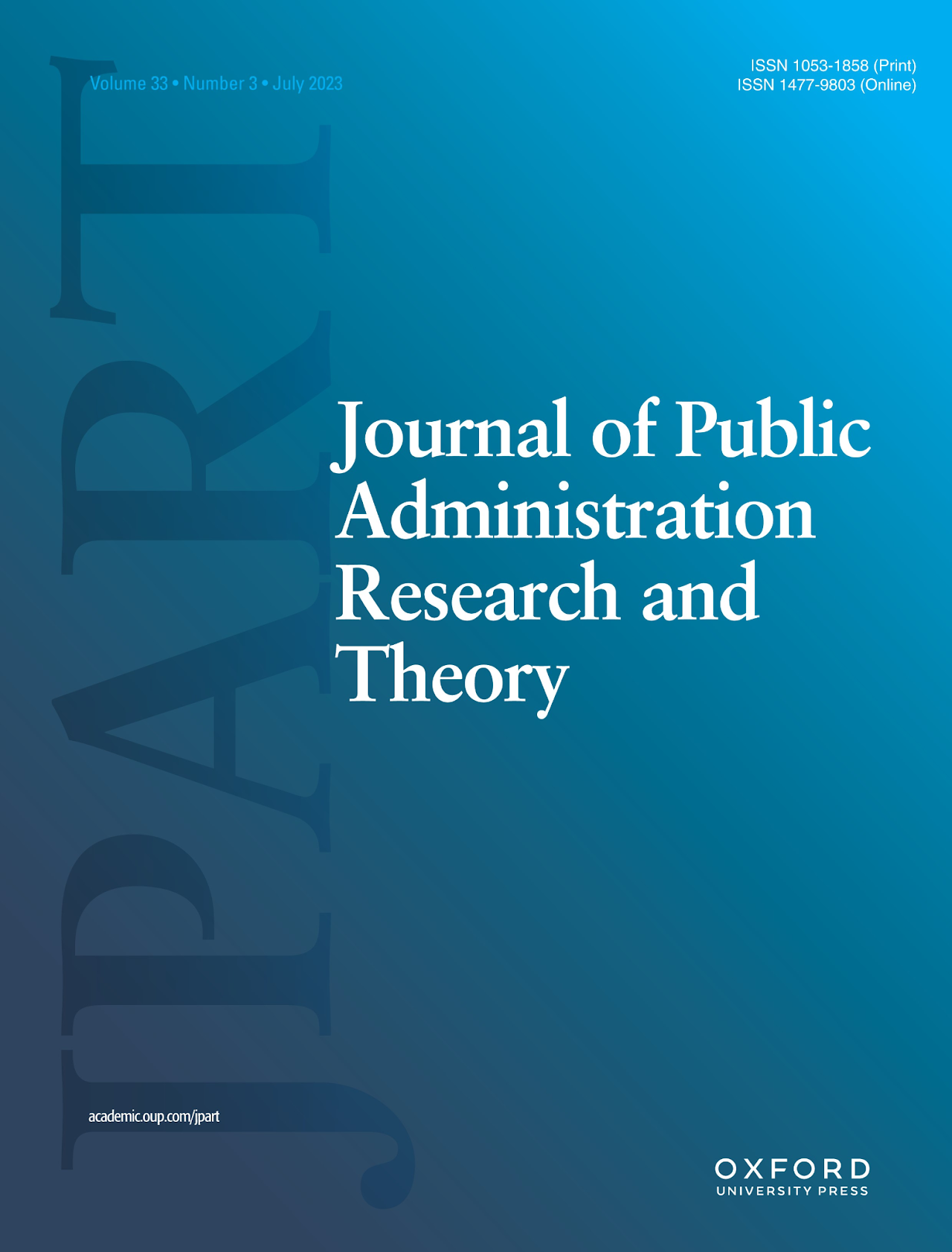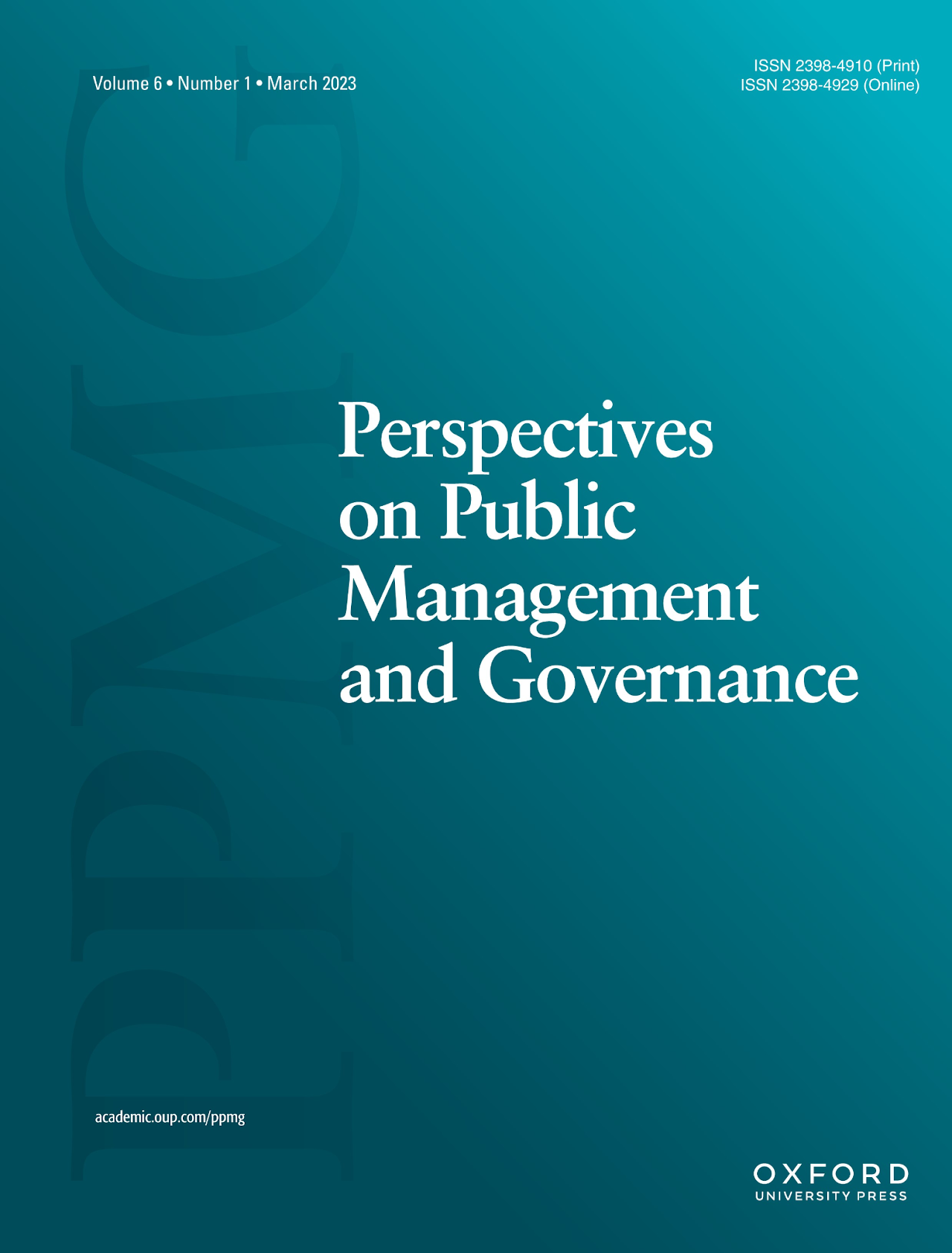Journals

PMRA proudly publishes two flagship journals that serve as essential resources for advancing public management scholarship.
Membership includes access to PMRA journals, JPART and PPMG. Access them via the links on your Member Home page, located under the Home menu or in Quick Links.
 Journal of Public Administration Research and Theory (JPART) Journal of Public Administration Research and Theory (JPART)
Editor:
Ole Helby Petersen, Roskilde University
Co-Editor:
Kim Sass Mikkelsen, Roskilde University
For manuscript submissions or inquiries, authors can visit the Oxford University Press website, the publisher of JPART.
The Journal of Public Administration Research and Theory (JPART) was established in 1990 to advance public administration scholarship by publishing the highest quality theoretical and empirical work in the field. The journal is multidisciplinary and includes within its scope organizational, administrative, managerial, and policy-based research that improves our understanding of the public sector. JPART is committed to developing diverse and rigorous research that extends and builds public administration theory. JPART is the top journal in the category of Public Administration with an impact factor of 4.2 and a five-year Impact Factor of 6.1, according to the 2022 Journal Citation Reports.
What is JPART’s theoretical and methodological orientation? What kinds of topics should I expect to see covered?
The journal is committed to theoretical and empirical scholarship and serves as an outlet for the best theoretical and research work in the field. It works to further the application of vigorous empirical testing of theoretical questions and the theoretical questioning of research findings and seeks to focus theory through research. JPART seeks the development of relevant theory and aims to be theoretically and methodologically inclusive.
The journal accepts the full range of rigorous empirical methods practiced in the social sciences – including field-based observation, “thick description,” case study research, ethnography, surveys, experimentation, historical analysis, economic analysis, and policy analysis.
JPART also publishes research syntheses, bringing together and summarizing a field or body of research, particularly where this identifies gaps in our knowledge, points out theoretical issues or problems, or provides a framework for future research.
The journal’s scope includes but is not limited to, the following areas: bureaucracies, decision theory, public choice theory, collaborative governance, population ecology, social equity, power, group theory, motivation, legitimacy, citizenship, contingency theory, action theory, systems theory, network theory, productivity, implementation, role theory, communication, management, representation, federalism, legislative-administrative relations, ethics, comparative administration, public administration and culture, elected executive-administrative relations, professionalism, theories of the state, and development administration.
 Perspectives on Public Management and Governance (PPMG) Perspectives on Public Management and Governance (PPMG)
Editors:
Kim Isett, University of Delaware
Jessica Sowa, University of Delaware
For manuscript submissions or inquiries, authors can visit the Oxford University Press website, the publisher of PPMG.
Perspectives on Public Management and Governance is dedicated to theory development and conceptual work challenging and advancing the field of public affairs. PPMG seeks to develop new theories, frameworks, and conceptual models, as well as summative and critical evaluations of existing theoretical frameworks. It welcomes contributions from a variety of epistemological frameworks that can add a new perspective to public administration and governance, e.g. positivist, normative, interpretive, grounded, and critical theory. In addition to publishing new theoretical work, the journal is interested in analytical reviews of literature. While the primary focus of the journal is not to conduct empirical studies, it anticipates treatment of concepts used in empirical work, discussion of trends, advancements, and synthesis of empirical work such as meta-analyses, and theoretical developments that offer empirical illustrations, either quantitative or qualitative.
Back to top ↑
|


